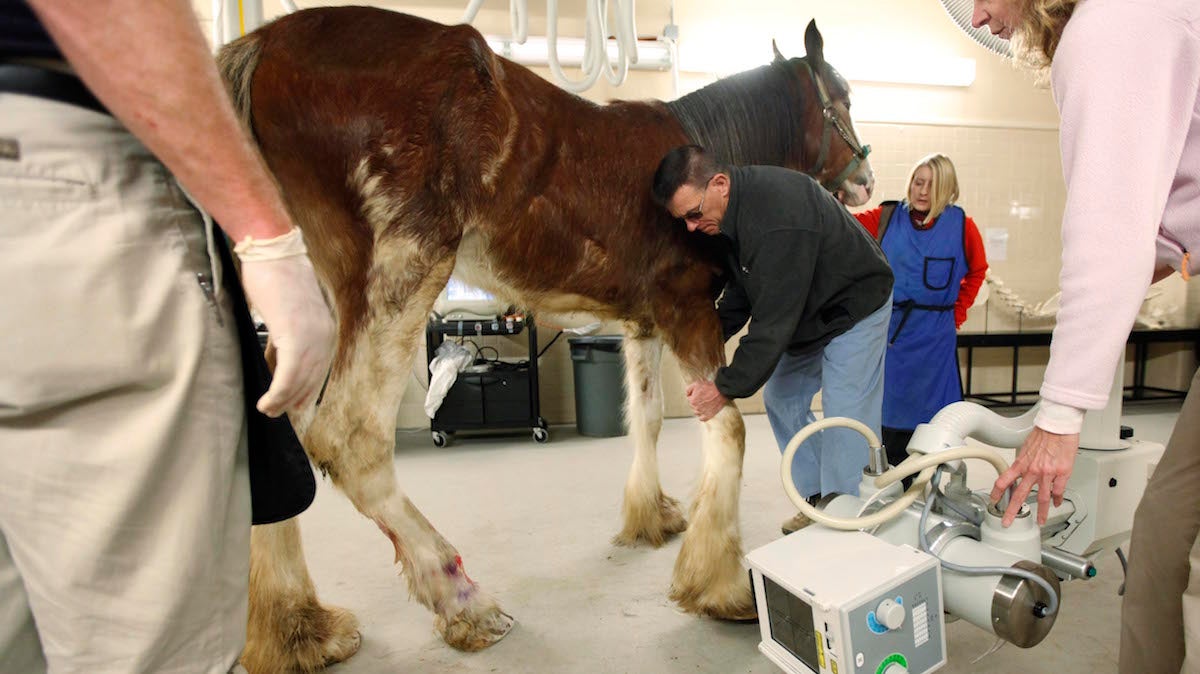Wolf’s budget proposes $30M cut to Penn’s vet school

Chief of large animal surgery Dr. Dean Richardson examines a horse at the University of Pennsylvania's New Bolton Center for Large Animals in Kennett Square Pa. (Matt Rourke/AP Photo)
Pennsylvania Gov. Tom Wolf’s belt-tightening budget includes a proposal to cut more than $30 million in state funds to the University of Pennsylvania’s School of Veterinary Medicine.
The vet school, along with Penn State University, is a member of the Pennsylvania Animal Diagnostic Laboratory System that helps “detect, contain and eradicate livestock and poultry diseases,” according to the governor’s budget document calling for the “elimination of state subsidies for the private” veterinary college at Penn.
The vet school appears poised to push back.
“Funding from the commonwealth ensures the vet school’s ability to deliver life-saving services at its two animal hospitals, advance research programs that support the agricultural industry, and maintain our commitment to developing and growing the veterinary profession,” the university said in a statement.
The proposed cut is also raising the ire of the state’s influential agriculture industry.
That’s because Penn’s vet school has been helping the industry deal with a big problem: a nationwide shortage of veterinarians who specialize in treating large farm animals.
“We’re talking about veterinarians that will come out to a farm and take a look at your 700-pound dairy cows, your big beef cattle, pigs, chickens — you name it,” said Mark O’Neill, spokesman for the Pennsylvania Farm Bureau.
O’Neill said, while many large animal vets are retiring, Penn has been helping to train the next generation.
State funds helped pay the school to conduct 70,000 tests during a deadly outbreak of avian flu in 2015, O’Neill added.
“They are one of the leaders in looking into research and seeing if there’s any potential for a threat or a solution to the problem,” he said.
WHYY is your source for fact-based, in-depth journalism and information. As a nonprofit organization, we rely on financial support from readers like you. Please give today.




